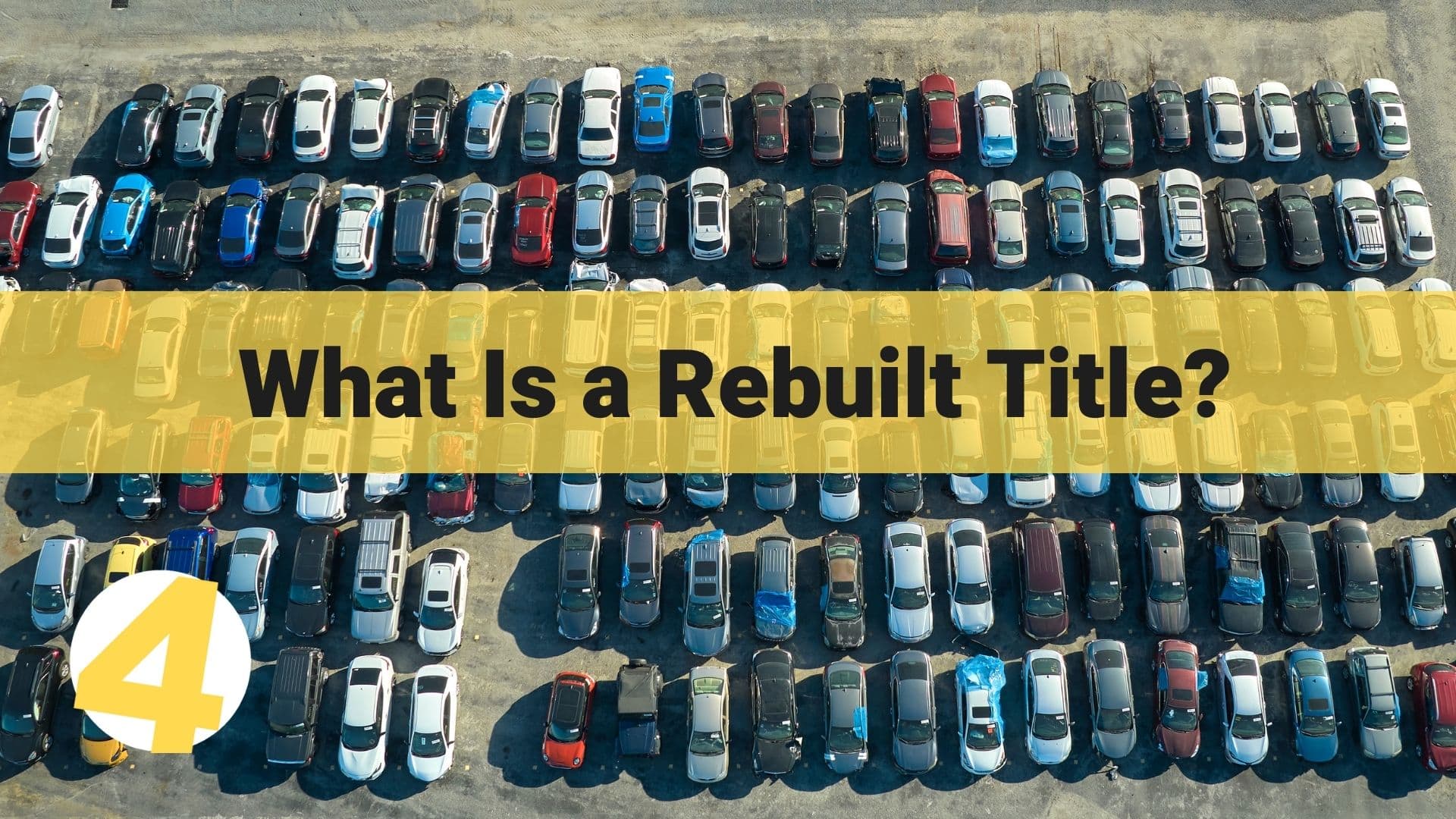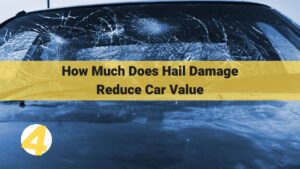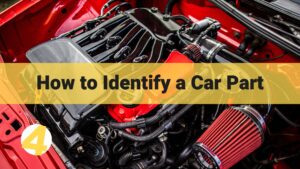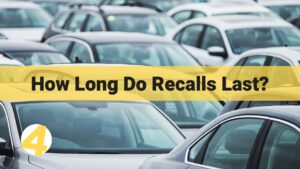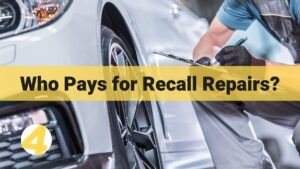A rebuilt title is a designation given to a previously damaged or deemed salvage vehicle that has been repaired and inspected for roadworthiness. It indicates the car has been restored from a compromised condition, often after an accident or other significant damage.
Continue reading to understand its implications for both buyers and sellers.
What Is a Rebuilt Title – A Deeper Look
A rebuilt title is a designation granted to vehicles that were previously labeled as “salvage” due to extensive damage but have since been repaired and restored to operating condition. In essence, a vehicle with a rebuilt title has faced significant challenges, such as an accident, flood, or other calamities, but has been rehabilitated to a state deemed safe for the road.
Simply put, a rebuilt title is like a badge of resilience for a car. It tells you that the vehicle has seen tough times, like significant damages, but has since been fixed up and checked thoroughly to ensure it’s safe to drive again.
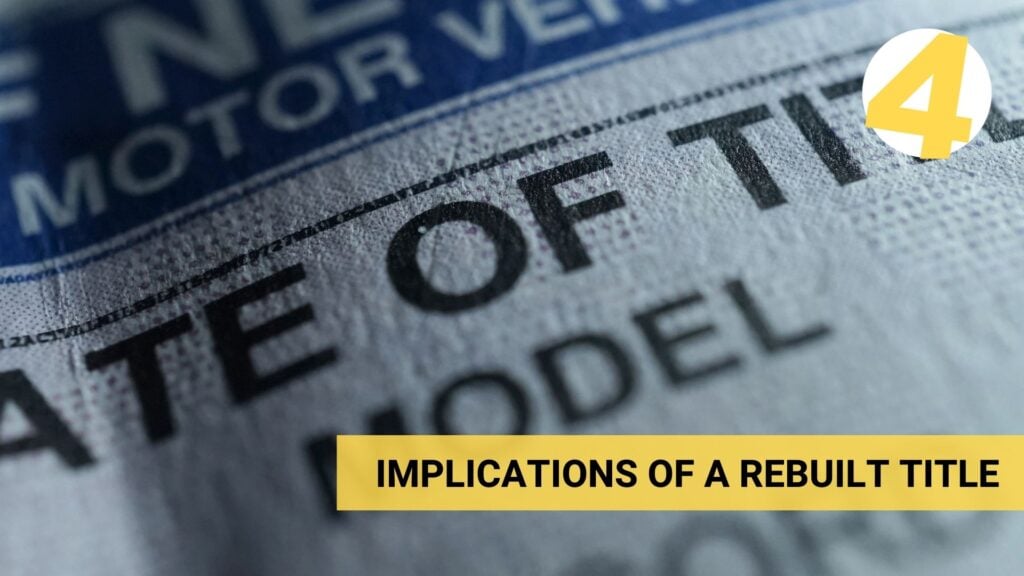
Implications of a Rebuilt Title
When a vehicle bears a rebuilt title, it carries with it a history of recovery, signifying that it was once severely damaged but has since been brought back to life. But what does this mean for the car and its potential owner?
Implications of a Rebuilt Title
- History Transparency
A rebuilt title acts as a red flag for potential buyers. It signifies that the vehicle has experienced significant damage in the past. While it has been repaired, the title ensures transparency about the car’s history.
- Financing Challenges
Some banks and financial institutions might be hesitant to finance vehicles with rebuilt titles due to their perceived risks. It can be a reflection of uncertainty regarding the vehicle’s reliability and lifespan.
- Warranty Voidance
Manufacturer warranties often become void for vehicles with a rebuilt title. Even if the vehicle is relatively new, the damages leading to the rebuilt status can nullify its original warranty.
- Inspection Necessity
For potential buyers, there’s an added responsibility to get the vehicle thoroughly inspected. Since the car had sustained significant damage in the past, a comprehensive check by a trusted mechanic becomes essential.
Impact on Vehicle Value
- Decreased Value
Cars with rebuilt titles typically have a lower market value compared to similar vehicles with clean titles.
- Varied Depreciation
The depreciation rate might be different for rebuilt vehicles. The initial drop in value post the repair and title change is significant, but subsequent depreciation can sometimes be more in line with standard rates.
- Buyer Perception
Even if the car has been expertly repaired, the history of significant damage tends to weigh on a buyer’s mind and affect their willingness to pay a premium.
- Cost vs. Value Balance
While the purchase price for rebuilt title vehicles is generally lower, buyers need to weigh this against potential future repair costs, insurance considerations, and resale challenges. A lower upfront cost might not always translate to long-term savings.
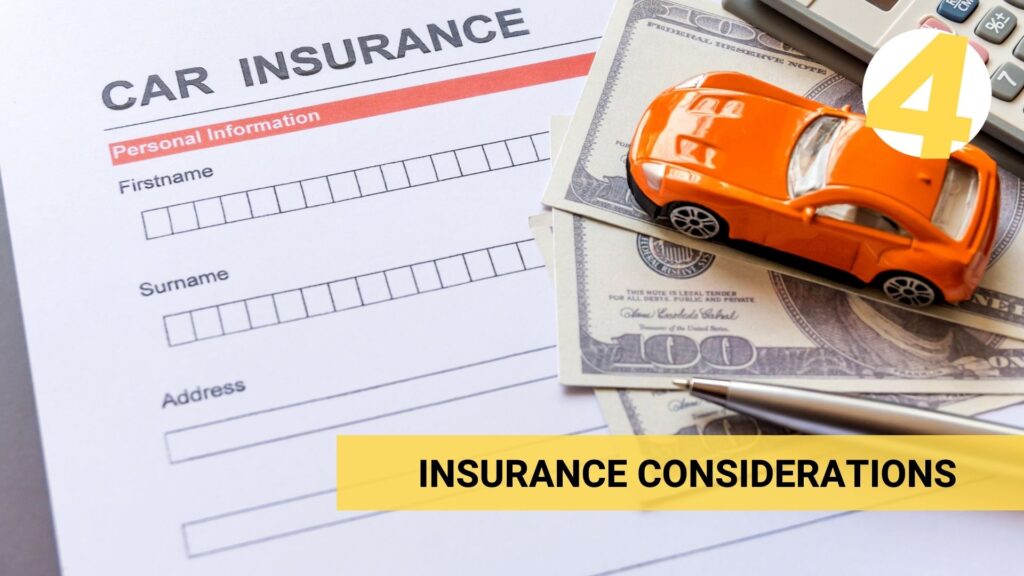
Insurance Considerations
Coverage Limitations
Obtaining comprehensive and collision insurance for a rebuilt title vehicle can be challenging. Some insurance companies might only offer liability coverage, which covers damages to other vehicles and properties but not your own vehicle.
Increased Premiums
Even if you do find an insurer willing to provide comprehensive coverage, premiums might be higher. This is because the insurer might perceive a higher risk with rebuilt vehicles, given their history.
Value Assessment
In the event of a claim, insurance companies might offer a lower payout for a rebuilt-titled vehicle than for one with a clean title. This is due to the already reduced value of rebuilt cars.
Initial Verification
Some insurers may require a thorough inspection of the vehicle before offering any coverage. This step ensures that the vehicle is roadworthy and meets the insurer’s standards for coverage.
Resale Potential and Market Impact
- Lower Resale Value. Prospective buyers, aware of the car’s history, often expect a significant discount.
- Slower Sale Process. This is partly because of the limited pool of interested buyers and the additional inspections and verifications that cautious buyers might request.
- Transparency Requirement. Sellers must be upfront about the vehicle’s rebuilt status.
- Buyer’s Trust. Offering detailed documentation about the repairs, the parts replaced, and the professionals involved can help assure buyers about the quality of the restoration.
- Market Perception. Rebuilt vehicles are sometimes seen as “lesser” in the broader market, even if they’ve been impeccably restored. This perception, fair or not, plays a substantial role in shaping the resale dynamics for these vehicles.
Buying a Vehicle with a Rebuilt Title
Purchasing a vehicle is a significant investment, and when considering one with a rebuilt title, it’s crucial to approach the decision with due diligence. These vehicles come with their own set of considerations, both positive and negative.
Before making any decisions, obtain a full history report for the vehicle. This will provide details about the extent of damage, the reason for the salvage title, and the nature of the repairs done. Always have the vehicle inspected by a trusted mechanic or professional. They will be able to identify potential issues and assess the quality of the repairs.
Ensure that all paperwork associated with the vehicle’s repairs, parts replacements, and inspections are available and validated. This provides a clearer picture of what the car has undergone. Moreover, never purchase a vehicle, especially one with a rebuilt title, without test-driving it. This gives you a firsthand experience of its performance and handling.
Given that rebuilt title vehicles typically have a lower market value, don’t hesitate to negotiate the asking price based on your findings and the vehicle’s condition.
The Risks of Buying a Vehicle with a Rebuilt Title
Unknown Repair Quality
Even with documentation, there’s always a risk that the vehicle wasn’t repaired to the highest standards or with the best parts.
Potential Resale Challenges
If you decide to sell the car in the future, you might face the same resale challenges that the current seller is experiencing, such as reduced value and longer sale time.
Limited Warranty
Many rebuilt title vehicles don’t come with a warranty, which means you might be solely responsible for any future repairs or issues.
Safety Concerns
If the vehicle wasn’t repaired properly, it might pose safety risks, especially if essential systems were affected by the initial damage.
The Benefits of Buying a Vehicle with a Rebuilt Title
Lower Purchase Price
One of the most enticing aspects of rebuilt title vehicles is their affordability. You can often get a relatively newer model for a fraction of the price of a clean title counterpart.
Potential for Quality
Not all rebuilt title vehicles are of inferior quality. Many are repaired meticulously, making them just as reliable as clean title cars.
Environmental Consideration
Purchasing a rebuilt vehicle is a form of recycling. Instead of the car being scrapped, it’s given a second life, reducing waste and environmental impact.
Transparency
A rebuilt title offers full transparency about the vehicle’s history, so you are aware of past damages and repairs.
Tips for Buying a Vehicle with a Rebuilt Title
Here are some essential tips to guide you during the buying process:
1. Understand the Damage History
Learn the specifics of what caused the vehicle to be designated as salvage initially. Was it flood damage, an accident, or theft recovery? Each type of damage comes with its own set of concerns. For instance, flood damage can lead to long-term electrical issues.
2. Inspect the Frame
A vehicle’s frame is its backbone. If the frame was damaged and not properly repaired, it could lead to significant safety and performance issues. During a professional inspection, pay extra attention to the frame’s integrity.
3. Check for Mismatched Parts
Different colored panels or obviously replaced parts can be signs of extensive repair. While this isn’t inherently bad, it does give an indication of the areas you should scrutinize more closely.
4. Look for Signs of Rust
Especially in cases of flood damage, rust can be a telling sign. Check the vehicle’s undercarriage, inside the trunk, and around the door frames.
5. Evaluate the Airbags
Ensure that the airbags are functional and have been replaced if they were deployed in a past incident. Non-functional or absent airbags are a significant safety concern.
6. Test All Electronics
From the dashboard lights to the stereo system, GPS, and power windows, see to it that all electronic components are in working order. Electronics can be particularly sensitive to damages like flooding.
7. Ask for Repair Receipts
Documentation of repairs can give you insights into the quality of parts used and the expertise of the repair shop or mechanic.
8. Determine Future Insurance Costs
Before finalizing the purchase, get insurance quotes for the vehicle. This will give you a clear picture of ongoing costs and any insurance limitations.
9. Consider Long-Term Value
Remember that the resale value of a rebuilt title vehicle might be lower than that of a clean title one. Factor this into your calculations if you plan on selling the vehicle in the future.
10. Trust Your Instincts
If something feels off or too good to be true during the buying process, it might be worth taking a step back to reassess. There are plenty of vehicles on the market, so don’t rush into a decision.
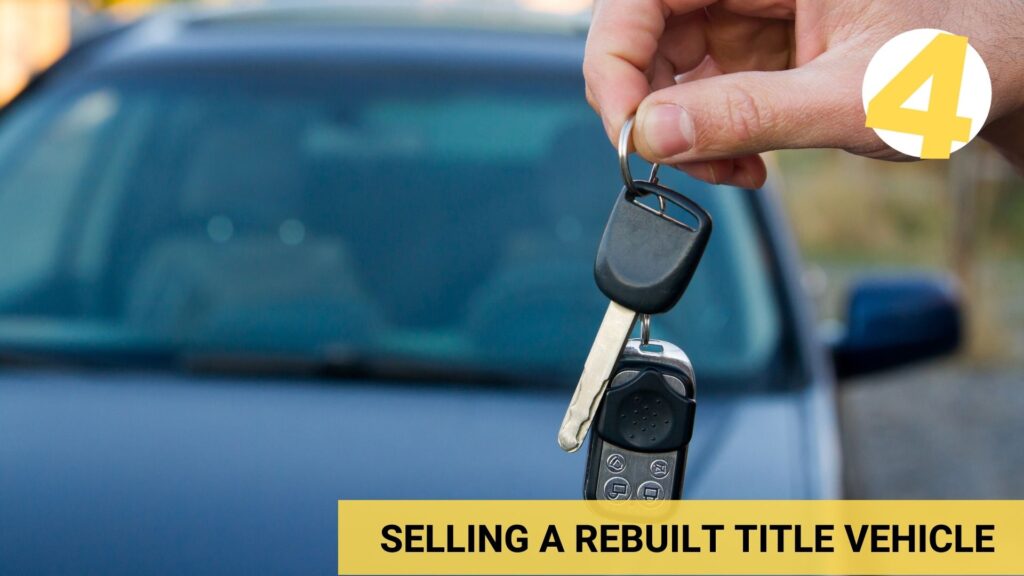
Selling a Rebuilt Title Vehicle
Selling a vehicle with a rebuilt title has its own set of challenges, given the inherent concerns buyers might have. If you’re on the selling side, it’s crucial to be transparent, prepared, and proactive to ensure a smooth transaction and gain the trust of potential buyers.
Always make sure that you clearly and openly communicate the reason for the title, the extent of the damage, and the repairs undertaken. Hiding or being vague about any information can deter potential buyers.
It is also important that you have all repair documentation, parts receipts, and any relevant certifications on hand. This not only validates your claims but also provides potential buyers with a sense of confidence in the vehicle’s condition.
If the vehicle was repaired at a reputable workshop or by a recognized professional, emphasize this. Highlighting the quality and standards of the repairs can assuage many concerns a buyer might have.
Understandably, buyers will likely want to negotiate the price due to the rebuilt status. Be open to reasonable offers but also know the value of your vehicle and the quality of repairs made. Also, allow potential buyers to test drive the vehicle. This can put many of their concerns to rest when they experience the vehicle’s performance firsthand.
If a buyer is hesitant, suggest they get the vehicle inspected by a mechanic of their choice. This shows transparency on your part and can help seal the deal if the inspection is favorable.
When listing the vehicle for sale online, ensure that you take clear, high-quality photos from multiple angles. Highlighting the areas that were repaired can also build trust with potential buyers. In your listing, be concise yet detailed about the vehicle’s history, its current condition, and any other selling points. Avoid using jargon or overly technical language.
If you can provide a short-term warranty on the vehicle, even if limited, it can greatly increase buyer confidence. This can be especially impactful if the vehicle has recently undergone significant repairs.
Lastly, be patient. Understand that selling a rebuilt title vehicle might take longer than a clean title one. Be patient and focus on finding a buyer who sees the value in your vehicle.
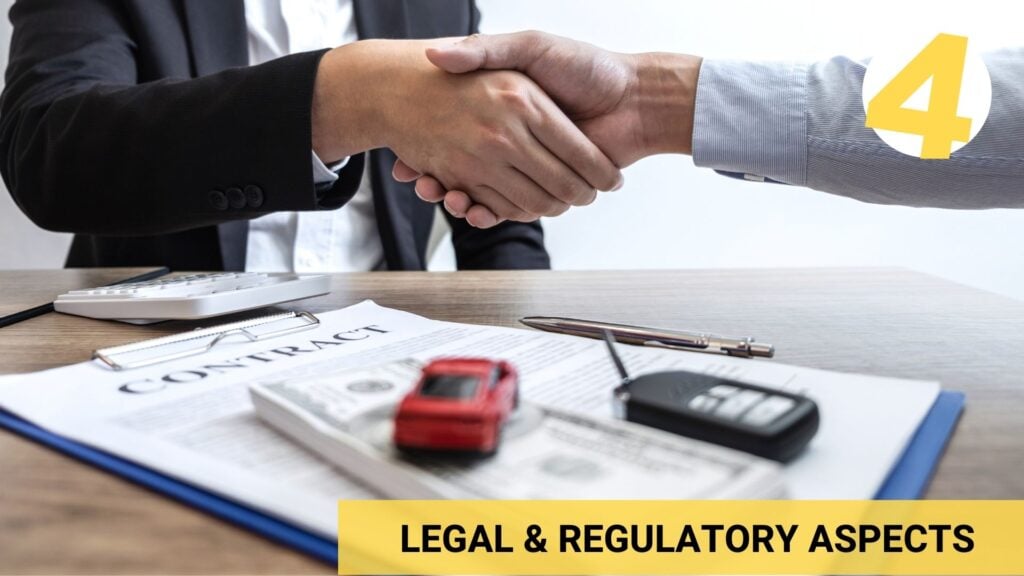
Legal and Regulatory Aspects
The process of obtaining a rebuilt title and the accompanying regulations are important to ensure road safety and provide consumers with vital information about a vehicle’s history. The primary reason for the existence of rebuilt titles is to inform potential buyers that a vehicle has been significantly damaged and then repaired. This serves as a protective measure for consumers.
Before a salvaged vehicle can be granted a rebuilt title, most jurisdictions require it to undergo a comprehensive inspection. This typically checks for roadworthiness, the quality of repairs, and ensures stolen parts haven’t been used in the reconstruction. Some regions may have restrictions on the sale of rebuilt title vehicles. For instance, dealerships in some areas might be prohibited from selling them without explicitly disclosing their history to potential buyers.
Requirements and Processes for Obtaining a Rebuilt Title
1. Documentation of Repairs
Before applying for a rebuilt title, you typically need to provide detailed documentation of all repairs made to the vehicle. This often includes receipts for parts and labor.
2. Official Inspection
A thorough inspection will check the quality of repairs, the safety of the vehicle, and ensure compliance with all local regulations.
3. Application for Rebuilt Title
Once the vehicle passes inspection, you can then apply for a rebuilt title with your local motor vehicle agency. There’s typically a fee associated with this process.
4. VIN Check
To ensure the vehicle hasn’t been stolen or involved in other illicit activities, the vehicle’s VIN (Vehicle Identification Number) is often checked against a database.
Comparing Titles: Rebuilt, Salvage, and Clean
It’s crucial to understand the distinctions between the different types of titles when buying or selling vehicles. Each signifies a particular history or status of a vehicle, and understanding these can help buyers and sellers make informed decisions. Here’s a breakdown of the most common title types:
Rebuilt Titles
A rebuilt title is given to a vehicle that was once branded as salvage due to significant damage but has since been repaired and deemed roadworthy after a thorough inspection.
Imagine a car that suffers significant flood damage. After the insurance company declares it a total loss, it’s sold to a repair shop. The shop fixes all the damages and has it inspected by the state’s transportation agency. Once it passes the inspection, the car is issued a rebuilt title.
Salvage Titles
A salvage title is assigned to a vehicle that has suffered significant damage, typically from an accident, flood, or other catastrophic event, to the point where repair costs exceed a certain percentage (often 50-90%) of its pre-damage value. These vehicles are often deemed as “total losses” by insurance companies.
For example, a brand-new SUV gets into a severe accident. The repair costs are assessed to be higher than the SUV’s current value. The insurance company then brands the vehicle as a total loss and issues a salvage title for it.
Clean Titles
A clean title, also known as a clear title, indicates that the vehicle hasn’t suffered significant damages that would lead to it being branded as salvage or rebuilt. It’s free of any title brands and signifies that the car hasn’t encountered major incidents that affect its value or safety.
For instance, a family sedan has been driven for five years without any major accidents or issues. It’s been maintained well, has never been declared a total loss, and hasn’t undergone significant repairs due to catastrophic events. This car would carry a clean title.
While all three titles indicate a vehicle’s history and status:
- A rebuilt title suggests the car was once significantly damaged but has been repaired.
- A salvage title shows that a vehicle has suffered substantial damage and might not be roadworthy unless repaired.
- A clean title indicates a vehicle that hasn’t experienced any major damages or events that would compromise its value or safety.
When buying or selling a vehicle, it’s essential to know the type of title it holds, as it greatly affects the vehicle’s value, insurability, and overall appeal in the market.
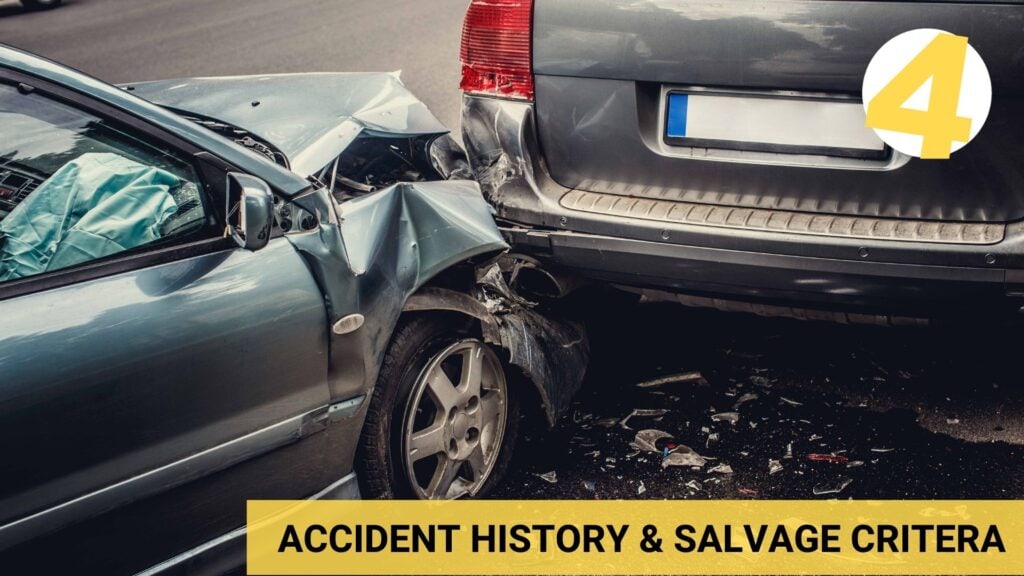
Accident History and Salvage Criteria
Accident history plays a crucial role in the life of a vehicle. It affects everything from its performance to its value on the market. Moreover, the criteria used by insurance companies to declare a vehicle “totaled” or “salvage-worthy” can be multifaceted.
Types of Accidents or Damage Leading to a Rebuilt Title
Collisions
The most common reason a vehicle might receive a rebuilt title is due to damage from collisions. Whether it’s a fender bender or a full-on crash, significant damage can mark a vehicle for salvage, after which repairs can lead to a rebuilt status.
Flood Damage
Water can wreak havoc on a vehicle’s electronic system, engine, and interior. Cars damaged in floods, especially those submerged for an extended period, often face challenges that lead them to be branded salvage.
Fire Damage
Vehicles damaged by fire, whether due to accidents or external events, can have compromised structural integrity and internal systems.
Vandalism
In some severe cases, vandalism can cause extensive damage, from shattered windows and slashed tires to keying that affects the entire body of the car.
Theft Recovery
If a stolen vehicle is recovered after the insurance company has already settled the claim, it might be branded salvage, especially if it endured damages or if it was stripped of essential parts.
Natural Disasters
Apart from floods, events like hurricanes, tornadoes, earthquakes, or hailstorms can cause significant damage to vehicles. They can all lead the vehicles towards salvage and potentially rebuilt titles.
Criteria for Declaring a Vehicle Totaled and Salvage-Worthy
Cost of Repairs vs. Vehicle’s Value
The primary criterion insurance companies use to decide if a vehicle is a total loss is comparing the cost of repairs to the vehicle’s actual cash value (ACV). If repairs approach or exceed this value, it’s often deemed totaled. The specific percentage can vary, but it’s commonly set between 50% to 90%.
State Regulations
Some states have specific thresholds that dictate when a vehicle is considered totaled. For example, in one state, a car might be considered totaled if repair costs exceed 60% of its value, while another state might set the threshold at 75%.
Safety Considerations
Even if the repair costs don’t exceed the vehicle’s value, if the damage compromises the safety of the car (e.g., frame or structural damage), it can still be deemed a total loss.
Age and Mileage of the Vehicle
Older vehicles with higher mileage might be declared totaled more easily than newer models simply because their ACV is lower. This makes the repair-to-value ratio higher.
Resale Value Post Repair
If the predicted resale value of the vehicle post-repair is considerably lower than its undamaged value, it might be more economically feasible for the insurance company to declare it totaled.
Steer Your Way to Informed Decisions: Drive Action Today!
There are many things you need to understand about car titles, from understanding the difference between salvage, clean, and rebuilt titles to grasping the implications each holds for buyers and sellers. However, with the right knowledge and a trusted partner by your side, the process becomes considerably smoother.
If you’re looking to transform a junk car, regardless of its title or condition, into cash, you can rely on our services at Cash4Cars. More than just a company offering cash for junk cars, Cash4Cars brings with it a promise of convenience, speed, and absolute professionalism. Free pick-ups, instant payments, and a dedicated team are just a few advantages that make the experience rewarding. So, whether your car has a clean, salvage, or rebuilt title, with Cash4Cars, you’re assured a hassle-free journey, culminating in instant cash.
Ready to turn that parked vehicle into a valuable asset? Call Cash4Cars and make the transition effortless.

